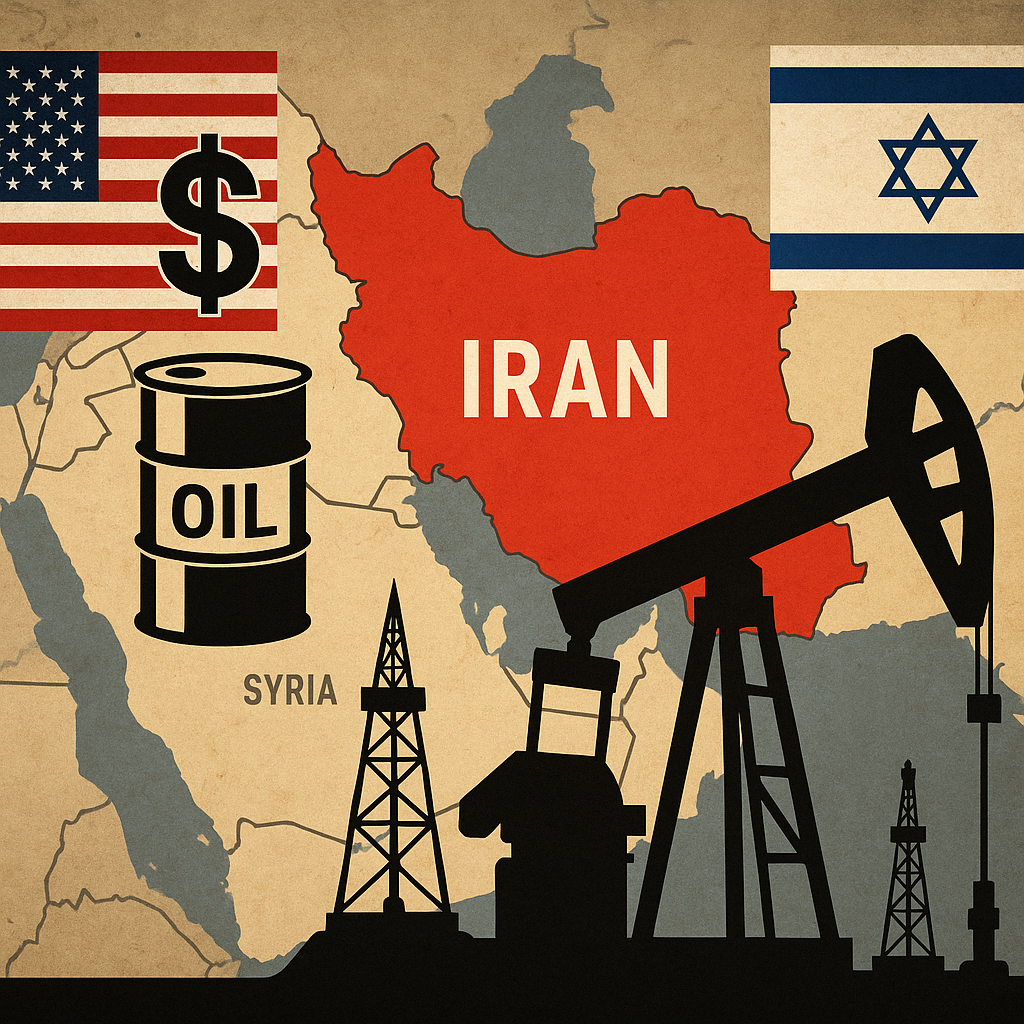The Middle East remains the epicenter of global oil politics, even in an age of renewable energy and climate concerns. From Iran and Saudi Arabia to the corridors of Washington and Tel Aviv, oil continues to shape alliances, ignite conflicts, and dictate foreign policy. Despite technological shifts, the world’s reliance on oil—and the petro dollar system—ensures that the region remains geopolitically explosive.

For audiences across South Asia, the USA, and the Middle East, understanding how oil still rules the game is crucial to decoding the news headlines and the balance of global power.
The Petro Dollar and American Interest
One of the most powerful economic forces binding the world to Middle Eastern oil is the petro dollar system—an arrangement that emerged after the collapse of the Bretton Woods system in the 1970s. Under this system, countries are required to buy oil in U.S. dollars, reinforcing the dollar’s global dominance.
For the United States, this system ensures continual demand for its currency, allows for deficit financing, and grants Washington immense economic leverage over nations that depend on oil trade. Maintaining stability—or control—in the region is not just about energy security; it’s about preserving the financial infrastructure that sustains U.S. global power.
Iran: Sanctions, Oil, and Resistance
No discussion of Middle East oil politics is complete without Iran. The country holds one of the largest proven oil reserves in the world. However, decades of sanctions, primarily driven by concerns over its nuclear ambitions and influence in Syria, Lebanon, and Iraq, have limited its ability to trade freely.
Iran has repeatedly tried to bypass the petro dollar, selling oil in other currencies or bartering with allies like China. This challenges American economic supremacy and adds tension to U.S.-Iran relations. Tehran’s oil reserves are not just economic assets—they are political tools used to survive sanctions and resist Western pressure.
Israel: A Rising Energy Player
Though Israel is not traditionally known as an oil-rich nation, it has become increasingly relevant in regional energy diplomacy. The discovery of natural gas fields in the Mediterranean has allowed Israel to emerge as a new energy exporter. It has also formed strategic energy alliances with Egypt, Greece, and Cyprus, counterbalancing Turkish and Iranian influence.
Israel’s alignment with U.S. interests and its silent partnerships with Gulf states have created a new energy axis that is deeply interwoven with oil and gas routes, security pacts, and geopolitical calculations.
Syria and the War Over Pipelines
The Syrian conflict is often viewed through sectarian or political lenses, but at its core lies a battle over pipeline routes and energy corridors. Competing interests between Iran, Qatar, Russia, and Western powers aimed to influence how and where pipelines from the Persian Gulf would reach Europe.
Control over Syria is key to shaping the future of energy transportation and regional alignment. The ongoing instability ensures that Syria remains a pawn in the greater oil chessboard.
Why South Asia Should Care
For countries in South Asia, especially India and Pakistan, Middle East oil is a lifeline. Energy security, diaspora remittances, and trade routes tie South Asian economies to Gulf stability. A spike in oil prices or a disruption in supply due to conflict in the Middle East can send shockwaves through South Asian markets.
Moreover, as India seeks deeper relations with the U.S. and Iran, and Pakistan leans towards Gulf allies, oil politics becomes a crucial determinant of foreign policy in the subcontinent.
In an era of green transitions and net-zero targets, oil continues to wield unmatched strategic power in the Middle East. From American interests in protecting the petro dollar to Iran’s resistance, Israel’s rise, and the ongoing conflict in Syria, the politics of oil remain central to the region’s future.
As long as the world runs on oil, the Middle East will remain a battleground of interests, and oil will continue to rule the game.
